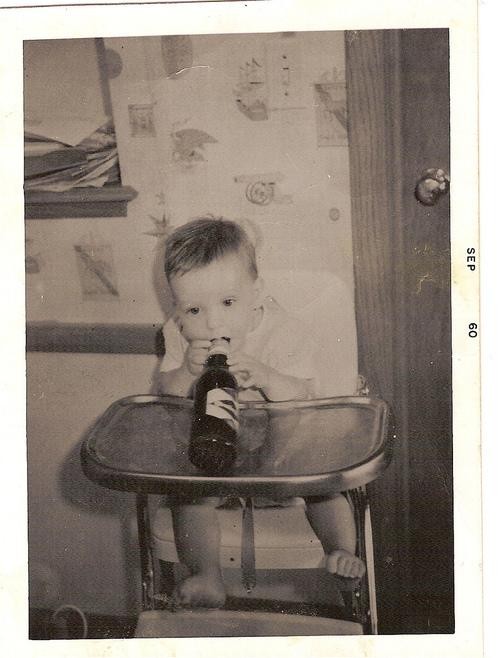An Open Letter To My Son About Underage Drinking

Photo by Redwin Law/Flickr
As hard as it is for me to believe this, I’m the mother of a teenager. In fact, Tom will be entering 10th grade this September.
The years have gone so fast that I really feel as if one day I was taking pictures of him graduating from our Mommy and Me class, the next day I couldn’t believe he was in the fourth grade, and then bang, he was in high school.
Play dates at friends' houses have been replaced by going out for sushi, a movie, or walking around town with his buddies. Alone. No adults watching over them.
Instead of chatting with his friends’ parents over coffee at kitchen tables, we wave to them out of car windows.
The times they are a changin'.
Whenever my family or friends ask about Tom and marvel at the fact that he is now a teenager, the subject of alcohol and drugs always seems to come up. As in, how will I handle it when he comes home drunk for the first time? Or what will I do if I find out that he had been using drugs?
I always find the questions a bit baffling because it’s just assumed that Tom will try these things. In fact, the common answer I get from most of my friends and family is that of course he will.
Truth be told, I find this mindset maddening. And if I was a kid today, I would find it really confusing.
From the time Tom was in kindergarten, he has been learning in school that drinking and drugs are dangerous choices. He has read books and been shown movies about how alcohol can affect your judgment and make it easier to engage in other risky behaviors like unprotected sex or driving under the influence.
In eighth grade his health teacher made the whole class write letters addressed to themselves making the promise that they wouldn't smoke, drink, or have unprotected sex in high school.
Yet so many parents take it as a foregone conclusion that their kids will engage in any manner of risky behavior.
I’ve been accused of living in “La La Land” if I think otherwise. “Kids will be kids,” some say. Others will chime in with, “after all we did it.”
Really? Is this the criteria we are going to base our parenting on?I get it. My son is growing up, and he’s going to have to make choices for himself.
I want him to spread his wings and discover who he is. And as much as some people think I’m living under a rock, I do know that he is going to make mistakes along the way.
But, I want him to know where I stand on engaging in behaviors that are at best risky and at worst illegal or life threatening.
I never want my son to say that I wasn’t clear about my feelings — so I’m writing them out here, for all to see.
Dear Tom,The legal drinking age in this country is 21. Please know that dad and I will never allow you to have alcohol in our house or in our presence until you reach that age. Please also know that no good has ever come from a group of teenagers drinking. It’s a recipe for all kinds of disasters.
If you should choose to drink, you’ll not only be breaking the rules of our house, you’ll be breaking the law.
If you get stopped for driving under the influence, or the police get called to a party where you have been drinking, you may be in a position where we can’t protect you.
Always call me and your dad. ALWAYS. No matter what you have done.
Don’t ever follow up a bad choice with one that’s worse just because you’re afraid of disappointing us or making us angry.
Will we be happy? Of course not. But we would much rather get you and any friend that wants to come with you home safely, than get a call that you are NEVER coming home.
Let me be clear that the fact that we love you and will stand by you does not in any way mean we will stand by while you do things that you know aren’t good for you.
There will be those who will tell you that your parents are being unreasonable and totally unrealistic. Some may tell you that you are a teenager and that it’s a rite of passage to get drunk. They may even regale you with stories of their own youthful mistakes.
Listen to your own heart and trust your gut. Also know there is nothing cool about waking up in your own vomit, or having a DUI before you are 18.
Your father and I are so proud of the man you are becoming. We love you so much that we don’t care if you hate us. That’s our gift to you, we are your parents not your friends.
Always,
Mom
*This essay originally appeared on Kathy Radigan's blog My Dishwasher's Possessed